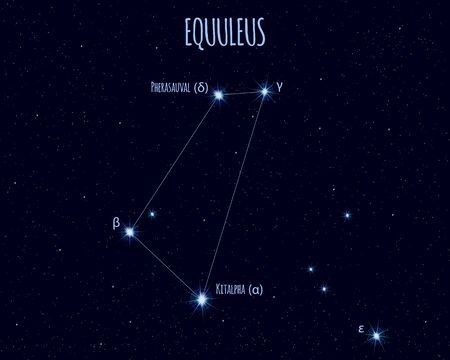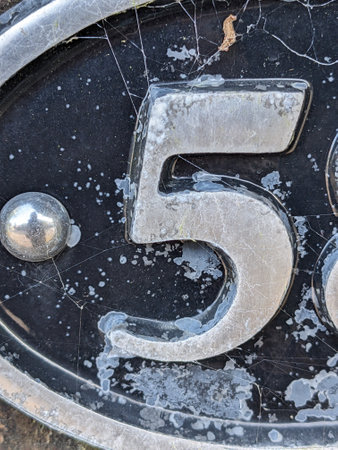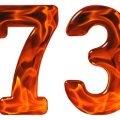1. Introduction to Zodiac Signs and Personality
Zodiac signs, often called astrological signs, are a popular way people in the United States explore personality traits and behaviors. Originating from ancient astrology, the zodiac is divided into twelve signs based on birth dates. Each sign is said to have its own unique qualities, strengths, and weaknesses. In everyday American culture, it’s common for people to ask each other about their “sign” when getting to know someone or just for fun.
Understanding the Basics of Zodiac Signs
The zodiac signs are split among four elements—Fire, Earth, Air, and Water—each believed to influence personalities in different ways. Here’s a quick look at all twelve signs and their typical date ranges:
| Sign | Date Range | Element |
|---|---|---|
| Aries | March 21 – April 19 | Fire |
| Taurus | April 20 – May 20 | Earth |
| Gemini | May 21 – June 20 | Air |
| Cancer | June 21 – July 22 | Water |
| Leo | July 23 – August 22 | Fire |
| Virgo | August 23 – September 22 | Earth |
| Libra | September 23 – October 22 | Air |
| Scorpio | October 23 – November 21 | Water |
| Sagittarius | November 22 – December 21 | Fire |
| Capricorn | December 22 – January 19 | Earth |
| Aquarius | January 20 – February 18 | Air |
| Pisces | February 19 – March 20 | Water |
The American Perspective on Astrology and Personality Traits
In the U.S., many people see zodiac signs as a lighthearted way to understand themselves and others. Horoscopes and daily zodiac predictions appear in newspapers, magazines, and popular websites. Some Americans strongly believe that their sign shapes who they are, while others simply enjoy reading about zodiac traits for entertainment. It’s not unusual for friends to compare compatibility based on their signs or to guess someone’s sign based on personality quirks.
Zodiac Signs and Common Personality Beliefs in America
The table below shows some popular beliefs about how each sign might influence personality:
| Zodiac Sign | Common Personality Traits (as believed in the U.S.) |
|---|---|
| Aries | Courageous, energetic, confident |
| Taurus | Loyal, practical, reliable |
| Gemini | Sociable, curious, adaptable |
| Cancer | Nurturing, sensitive, intuitive |
| Leo | Dramatic, generous, outgoing |
| Virgo | Diligent, analytical, detail-oriented |
| Libra | Diplomatic, fair-minded, sociable |
| Scorpio | Mysterious, passionate, determined |
| Sagittarius | Optimistic, adventurous, independent |
| Capricorn | Disciplined, responsible, ambitious |
| Aquarius | Innovative, independent, humanitarian |
| Pisces | Compassionate, artistic, empathetic |
The Role of Zodiac Signs in Modern American Life
Zodiac signs are woven into many aspects of American pop culture—from dating apps that suggest matches based on astrological compatibility to memes poking fun at certain sign stereotypes. Whether taken seriously or enjoyed as a casual hobby, astrology remains a familiar conversation starter and a way for people to reflect on their personalities in a fun and engaging manner.
2. Historical Context and Cultural Significance
To understand how zodiac signs influence personality, its important to look back at their origins and see how these beliefs made their way into American culture. Zodiac ideas have roots in ancient civilizations like Babylon, Greece, and Rome. These societies created the first systems of astrology, linking the movement of stars and planets to human behavior.
Origins of Zodiac Beliefs
The concept of zodiac signs started thousands of years ago. The Babylonians divided the sky into twelve sections, each connected to a specific constellation. Later, the Greeks adopted this system, giving us the names and symbols we recognize today—like Aries, Taurus, and Gemini. Over time, Roman culture spread astrology across Europe.
| Ancient Culture | Main Contribution to Astrology |
|---|---|
| Babylonian | First 12-sign zodiac system |
| Greek | Named zodiac signs and linked them to mythology |
| Roman | Spread astrology through Europe |
Astrologys Journey to America
Astrological ideas traveled to America with European settlers. In early American history, astrology was mostly used in almanacs for predicting weather or farming conditions rather than personality traits. It wasn’t until the late 1800s and early 1900s that horoscopes became popular in American newspapers and magazines.
Zodiac Signs in American Traditions
Today, zodiac signs are part of daily life in the United States. Many Americans read their horoscopes for fun or guidance on relationships and work decisions. Astrology has also become a social activity—people often ask about each others signs when meeting for the first time.
Zodiac Signs in Pop Culture
The influence of zodiac signs can be seen everywhere in American pop culture. From celebrity interviews to fashion lines inspired by astrological themes, zodiac references are easy to spot on TV shows, social media, and even dating apps. This wide presence has helped make astrology both a source of entertainment and a way for people to express their identities.

3. Scientific Perspectives on Astrology
Astrology is often a hot topic in American culture, with many people reading horoscopes for fun or guidance. But what does science say about the idea that zodiac signs influence personality? Let’s look at what researchers and experts from major American institutions have discovered.
Research on Astrology’s Validity
Over the years, scientists have conducted various studies to test if there’s any real connection between zodiac signs and personality traits. Most of these studies are based on large groups of people and use established personality tests, like the Big Five Personality Traits.
Main Findings from Scientific Studies
| Study/Institution | Method | Key Findings |
|---|---|---|
| National Science Foundation (NSF) | National surveys | No scientific evidence supports astrology as a way to predict personality or events. |
| University of Michigan (2019) | Big Five personality test vs. birth date | No link found between zodiac signs and personality traits. |
| American Psychological Association (APA) | Review of multiple studies | Personality differences can be explained by environment and genetics, not astrology. |
| Berkeley University Study | Analysis of 2,000+ participants’ birth charts and personalities | No significant correlation between sun sign and personality characteristics. |
Expert Opinions in the U.S.
Most American psychologists and scientists agree: There isn’t enough scientific proof that your zodiac sign can predict your personality. Experts say that while astrology can be entertaining and meaningful for some, it doesn’t hold up under scientific testing. For example, Dr. Stuart Vyse, a psychologist and author, points out that people often believe horoscopes because they use general statements that could apply to anyone—a phenomenon known as the “Barnum effect.”
The Role of Belief vs. Science
In American society, many people enjoy astrology for its cultural value or personal meaning rather than scientific accuracy. Even though studies show little evidence for a real connection, astrology still has a strong place in pop culture, social media, and daily life.
4. The Popularity of Zodiac Signs in Modern American Life
Why Are Zodiac Signs Still So Popular in the U.S.?
In today’s America, zodiac signs are more than just a passing trend—they’re a vibrant part of everyday culture. From memes to mobile apps, and even casual office chats, astrology is everywhere. But what keeps zodiac signs so popular? Let’s break it down.
Social Media Trends and Astrology
Social media has played a huge role in the modern popularity of zodiac signs. Platforms like Instagram, TikTok, and Twitter are full of astrology content—funny memes, daily horoscopes, compatibility quizzes, and more. Many people share posts about their own sign or tag friends in relatable astrology jokes. This constant sharing makes it easy for zodiac talk to spread and stay relevant.
| Platform | Popular Zodiac Content |
|---|---|
| Meme accounts, story polls, daily horoscope graphics | |
| TikTok | Short videos about each sign’s habits or relationships |
| Twitter (X) | Trending hashtags, viral threads about sign traits |
Zodiac Signs and Personal Identity
For many Americans, knowing and sharing their zodiac sign is a way to express personality. It’s not unusual to hear someone say “I’m such a Gemini” or use their sign as an icebreaker when meeting new people. Some folks even use astrological insights to reflect on their strengths, weaknesses, or compatibility with others. This gives people a fun way to explore who they are and connect with others who share similar traits.
How People Use Zodiac Signs in Daily Life:
- Small Talk: Asking “What’s your sign?” at parties or in dating apps is common.
- Friendship & Dating: People check compatibility charts for fun before going on dates.
- Self-Reflection: Many read horoscopes for guidance or reassurance during tough times.
The Role of Astrology in Everyday Conversations
Zodiac signs have become a go-to topic in casual conversation. Friends might compare their signs for laughs, coworkers might joke about Mercury retrograde after a bad day, and family members sometimes read horoscopes together for entertainment. Even if not everyone truly believes in astrology, talking about it adds color to social interactions.
Quick Facts: Why Zodiac Signs Stay Relevant in America
- Relatable Content: Memes and posts make astrology feel personal and fun.
- Cultural Connection: Sharing sign traits helps people bond over similarities and differences.
- No Need for Serious Belief: For many, zodiac talk is more about connection than conviction.
The ongoing fascination with zodiac signs shows how tradition can blend with technology and pop culture—keeping astrology alive in the hearts (and feeds) of modern Americans.
5. Reconciling Science and Belief: A Balanced View
In the United States, zodiac signs are a fascinating blend of pop culture and personal identity. While many Americans enjoy reading horoscopes and sharing their star signs, there is also a strong tradition of scientific skepticism. So how do people balance these two perspectives in everyday life?
Science Meets Tradition
Most Americans understand that there’s little scientific evidence linking zodiac signs to personality. However, astrology remains popular, especially as a fun way to connect with others or reflect on oneself. This mix of curiosity and doubt is a unique feature of American culture.
Ways Americans Balance Science and Astrology
| Approach | Description | Common Examples |
|---|---|---|
| Skeptical Engagement | Enjoying astrology for entertainment while not fully believing it | Reading daily horoscopes just for fun; laughing about Mercury retrograde memes |
| Cultural Connection | Using zodiac talk as an icebreaker or social tool | Asking someone’s sign at parties; sharing compatibility charts among friends |
| Personal Reflection | Looking to astrology for self-understanding, even if unsure about its accuracy | Thinking about how one’s sign might explain certain habits or emotions |
| Scientific Curiosity | Researching the science behind astrology or discussing its origins in history class | Watching documentaries or reading articles on astrology’s background |
The Role of Zodiac in Self-Image and Relationships
Even if people don’t fully believe in astrology, zodiac signs often become part of their self-image or the way they relate to others. For example, someone might say, “I’m a Leo—that’s why I love being center stage!” Whether taken seriously or just for laughs, these labels can shape conversations and friendships.
Zodiac Signs in Everyday American Life
- Self-Expression: Some use their sign as a way to express individuality (e.g., wearing zodiac jewelry or posting about their sign on social media).
- Relationship Insights: Couples sometimes check astrological compatibility out of curiosity, even if only half-serious.
- Cultural Trends: Astrology apps and memes keep the zodiac conversation alive among all ages.
This balanced approach—enjoying zodiac traditions without letting them dictate every choice—reflects a broader American attitude: open-minded but grounded in facts. People find ways to make room for both science and belief, shaping their identities and relationships in the process.


